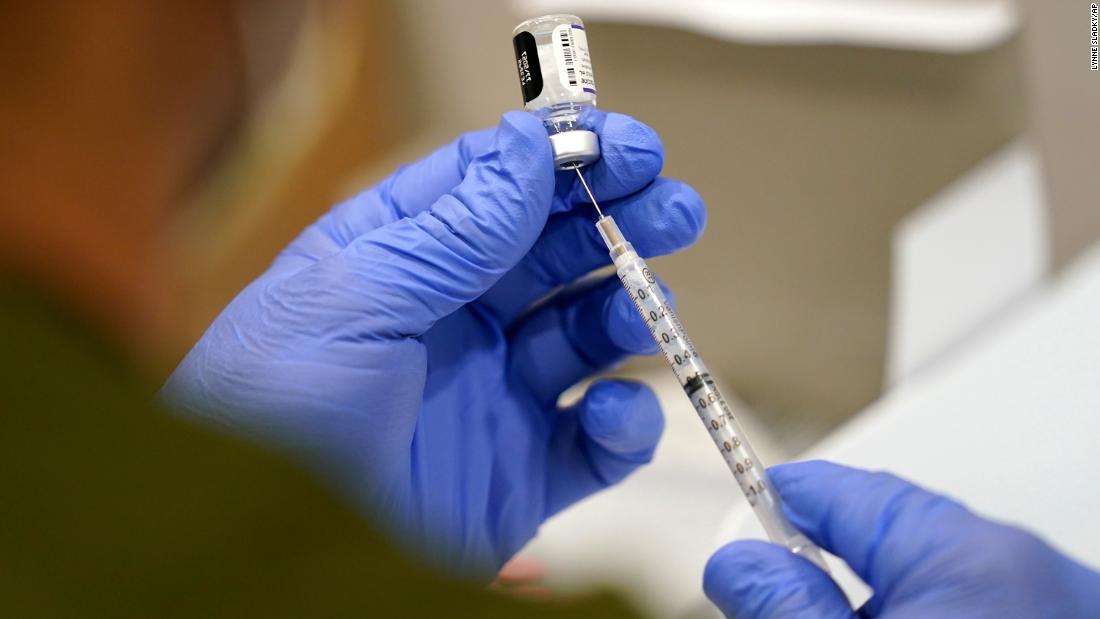Opinion: How the Covid-19 booster shots could make the vaccination gap worse
As recipients of the Pfizer vaccine, they became eligible for a booster dose starting in late September. Since then, millions of others have been waiting with great anticipation to know whether the US Food and Drug Administration would approve boosters of other Covid-19 vaccines as well.
This past week, one step closer: Advisers to the FDA recommended the agency authorize additional doses of the Moderna and Johnson & Johnson vaccines for emergency use. In the former, for individuals 65 or older, other adults at high risk for severe Covid-19, and those who live or work in a place that puts them at high risk of complications; and in the latter, for all those 16 and older.
To overcome the growing pandemic, we as a nation must all now push to address this widening gap.
This negative perception of boosters suggests a growing divide that public health leaders, physicians and elected officials need to try to correct.
Just like the SARS-CoV-2 virus is constantly mutating, so, too, is our scientific knowledge of the evolving pandemic. Science is a constantly moving enterprise, involving inherent uncertainties. Researchers rarely know all the answers. Rather, discovery generates more questions — just as removing the outer layers of an onion reveals more layers underneath.
Unfortunately, such murkiness makes many people uncomfortable. Difficulties tolerating ambiguity have in fact been associated with increased levels of stress among medical trainees and others.
Political leaders, the FDA, the US Centers for Disease Control and Prevention, public health officials and the vaccine-manufacturing companies themselves thus need to figure out how to communicate about our ever-altering knowledge on Covid and its prevention, and how science often entails uncertainties.
But, given the newness of the pandemic, the Delta variant and the vaccine itself, data to support these claims has been somewhat limited. Third shots increase antibodies, which presumably will strengthen the body’s resistance and reduce even mild symptoms, but data showing these differences will probably take weeks or months to accumulate.
We also need to consider not just whether the booster shots are safe enough but how much to push additional shots as opposed to other approaches — particularly as we weigh what else we must achieve to ultimately defeat the pandemic. For example, how much effort and expense should federal, state and local governments spend on getting fully vaccinated people boosters, and do those benefits and costs always outweigh those of getting unvaccinated people their first shot? Local public health officials have told me that they are already confronting these questions.
Uninoculated people include tens of millions of eligible Americans, as well as billions more worldwide. Some critics may argue we should prioritize, by far, getting third shots for Americans. But given how interconnected our world has become and how easily Covid-19 spreads, virulent strains that develop elsewhere will undoubtedly find their way here, too.
Despite the FDA’s decisions, challenges in the global vaccination drive will continue — including the need to communicate and educate people about these realities.
The FDA, the CDC and political and public health leaders should get further input from media, communications and advertising experts to devise messages that are as effective as possible. Those of us who have been vaccinated also undoubtedly know some vaccine refusers with whom we should also try to address these misperceptions.
These wholly unprecedented times require not only sound decision-making, but clear and transparent messaging to help all Americans, regardless of politics. The medical community, political leaders and others need to not only assess the ever-expanding and evolving data about boosters, but determine how best to present their decisions in ways that can ultimately enhance the health of individuals on both sides of our nation’s growing vaccine divide.
![]()


